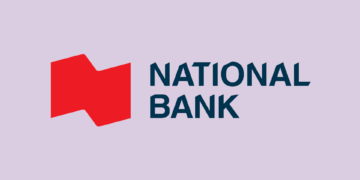How to Negotiate Better Terms on a Personal Loan

The Importance of Negotiating Your Loan Terms
Many borrowers enter the loan market feeling daunted by the maze of terms, rates, and conditions presented by lenders. It is crucial, however, to recognize that you are not powerless in this process. With the right preparation and knowledge, you can negotiate better loan terms that can significantly impact your financial future.
Key Considerations for Loan Negotiation
Before entering a negotiation with a lender, there are several critical factors you should contemplate:
- Credit Score: Your creditworthiness is one of the primary attributes that lenders evaluate. A higher credit score, typically above 700, can lead to more favorable interest rates. For example, if your score is significantly above average, you may have the leverage to request a lower rate, which can save you hundreds, even thousands, of dollars over the life of the loan.
- Loan Amount: Clearly define how much money you need to borrow. This entails not only stating the amount but also being prepared to justify it. If you’re looking to borrow $20,000 for a home renovation, having a well-researched budget and a detailed plan can strengthen your case during negotiations.
- Repayment Terms: Understanding the duration of the loan and being aware of any flexibility regarding payment schedules is vital. For instance, asking for a longer repayment term might lower your monthly payments but could lead to paying more interest over time. Conversely, a shorter term may increase monthly payments, but you’ll pay less interest overall.
- Market Rates: Staying informed about current interest rates in Canada is essential. This knowledge empowers you to negotiate from a position of strength. For example, if the average rate for personal loans in Canada is 6%, and your lender offers you 8%, having this data allows you to request a more competitive rate.
Understanding and addressing these factors can lead to successful negotiations, yet many borrowers overlook their potential to advocate for themselves.
Empowering Your Negotiation Strategy
Arming yourself with the right tools and strategies can make all the difference in securing favorable loan conditions. In addition to the above considerations, approach the conversation prepared with data and a calm demeanor. Practicing what you want to say and anticipating the lender’s counterarguments can give you an edge.
By honing your negotiation skills, you not only stand to lower your monthly payments or interest rates but also build a more solid foundation for your financial future. Remember that reaching out for better terms is a common practice and shows lenders that you are an informed and proactive borrower.
As you prepare for your negotiations, keep in mind that you have the right to ask questions and seek clarifications on any terms you do not understand. The knowledge and confidence you gain will empower you to advocate for yourself effectively in the lending process.
Preparation: The Foundation of Successful Negotiation
Before you step into the world of loan negotiation, preparation is essential. It’s not merely about walking into the lender’s office and asking for better terms; it’s about laying a strong groundwork that showcases your reliability as a borrower. Proper preparation enables you to approach negotiations with confidence, making you less susceptible to high-pressure tactics that some lenders might employ.
Gather Essential Documentation
One of the most effective ways to demonstrate your creditworthiness and commitment to negotiating better terms is by gathering relevant documentation. Having key documents at your fingertips not only supports your case but also shows lenders that you are organized and serious about the process. Here are some important documents to collect:
- Proof of Income: This could include pay stubs, tax returns, or letters from your employer. By verifying your income, you reassure lenders of your ability to repay the loan.
- Credit Report: Before negotiating, obtain a copy of your credit report. This allows you to identify any inaccuracies, which you can address with the lender, and it also gives you insight into your current credit standing.
- Debt-to-Income Ratio: This ratio helps lenders understand your financial obligations compared to your earnings. A lower ratio is favorable. Ideally, aim for a debt-to-income ratio below 36% to strengthen your position during negotiations.
- Comparison of Loan Offers: Collect offers from other lenders. This provides you with evidence of competitive rates or terms that can serve as leverage in your negotiations.
With these documents ready, you can approach the lender’s representative with a well-rounded view of your financial situation. This preparation demonstrates that you are serious about managing your financial obligations responsibly.
Practicing Your Negotiation Points
Once you have gathered the necessary documentation, it’s time to hone your negotiation skills. Consider your primary objectives: Are you focused on obtaining a lower interest rate, more flexible repayment terms, or perhaps both? Outlining your priorities will guide your approach during the discussion. Here’s how you can practice effectively:
- Role-Playing: Engage a trusted friend or family member to role-play as the lender. Practice presenting your case and responding to potential pushback they may provide. This will help you feel more comfortable during the actual negotiation.
- Script Key Points: Write down key points you want to communicate. This script can serve as a guide during the conversation, helping you stay focused and composed.
- Stay Calm: Negotiations can be stressful, but maintaining a calm demeanor helps project confidence. Be prepared for resistance and practice taking deep breaths to manage anxiety.
In summary, proper preparation and practice significantly enhance your chances of successfully negotiating better loan terms. With well-organized documents and a clear understanding of your priorities, you are poised to engage effectively with lenders, making the negotiation process smoother and more fruitful. Remember, a proactive approach not only boosts your confidence but also exemplifies to lenders that you are a savvy borrower who is serious about achieving optimal loan conditions.
Engaging with Lenders: The Art of Negotiation
After laying the groundwork for your negotiation, the next step involves engaging directly with lenders or their representatives. This is where your preparation truly shines, as you translate your documentation and practiced points into a negotiation strategy. Remember, successful negotiation is not just about asking for better terms—it’s about building rapport and effectively communicating your value as a borrower.
Establishing Rapport
Building a positive relationship with the lender can significantly influence the outcome of your negotiation. A friendly and respectful demeanor can set the tone for a productive conversation. Here are strategies to foster a connection:
- Be Personable: Start the conversation with a friendly greeting and perhaps share a brief, genuine personal anecdote related to your loan purpose. Personalizing the conversation helps break the ice, making both parties more comfortable.
- Listen Actively: Show genuine interest in the lender’s responses. By listening attentively, you can address any concerns they raise, displaying your willingness to cooperate and find a mutually beneficial solution.
- Acknowledge Their Position: Builders of rapport often acknowledge the lender’s perspective. Understand that they have guidelines to follow and targets to meet. Acknowledging this can contribute to a more collaborative atmosphere.
Presenting Your Case
Now that you have established a foundation of rapport, you can transition into presenting your case for better loan terms. Clarity and assertiveness are key in this phase:
- Use Clear Language: Avoid jargon—use straightforward terms to express your goals. For example, instead of stating you wish for a “lower APR,” specify that you are looking for a “more affordable interest rate.” This clarity helps ensure your request is understood clearly.
- Highlight Your Strengths: Use the documentation you’ve prepared to illustrate your financial reliability. For instance, you might say, “Based on my consistent income and low debt-to-income ratio, I believe a reduced interest rate would be appropriate.”
- Be Specific About Your Request: If you want a lower interest rate, specify the precise rate you are aiming for. If you are looking for flexible repayment terms, clarify what would work best for you—such as longer repayment periods without penalties.
Anticipating Counteroffers
Be prepared for the lender to counter your proposals, sometimes with options that may not meet your original expectations. Here’s where your practice pays off:
- Stay Open to Alternatives: If the lender cannot meet your requested rate, ask about other alternatives such as waiving fees, offering a flexible repayment schedule, or providing tactics to improve your application for future Loan options.
- Keep the Conversation Collaborative: Phrases like “What can we do together to make this work?” can lead to creative solutions, showing your willingness to collaborate rather than simply demanding your way.
- Be Prepared to Walk Away: If negotiations don’t progress toward acceptable terms, don’t hesitate to explore options with other lenders. Communicate that while you value their offer, it must meet your financial needs to be considered seriously.
In a world filled with options for personal loans, effectively engaging with lenders is crucial in achieving favorable negotiation outcomes. By establishing rapport, presenting your case with confidence, and remaining open to alternative terms, you’re well on your way to securing a personal loan with terms that better fit your financial situation and goals.
Conclusion
Negotiating better terms on a personal loan is not merely about obtaining a lower interest rate; it encompasses a thorough understanding of your financial needs and the ability to communicate them effectively. By taking the time to prepare the necessary documentation and practicing your negotiation strategies, you position yourself as a confident and informed borrower. Remember, effective communication is key; being clear about your needs while remaining open to discussion creates a positive dialogue with lenders.
Additionally, fostering rapport can enhance your chances of achieving favorable terms. A friendly, respectful interaction can lead to more flexible solutions that cater to both parties’ interests. In situations where lenders present counteroffers, being adaptable is essential. Explore various options, whether it’s modified repayment terms or waived fees, as the goal is to find an arrangement that supports your financial stability.
Finally, never underestimate the power of walking away if negotiations are not aligning with your goals. There are numerous lenders available, and sometimes the best deal is one you find elsewhere. By approaching the negotiation process with clarity, preparation, and resilience, you not only improve your prospects for a better loan but also enhance your financial literacy, ultimately empowering yourself for future financial decisions. Keep these principles in mind, and you are well equipped to negotiate successfully and secure a personal loan that supports your objectives.

Linda Carter is a writer and financial consultant specializing in economics, personal finance, and investment strategies. With years of experience helping individuals and businesses make complex financial decisions, Linda provides practical analyses and guidance on the World Information Now platform. Her goal is to empower readers with the knowledge needed to achieve financial success.






